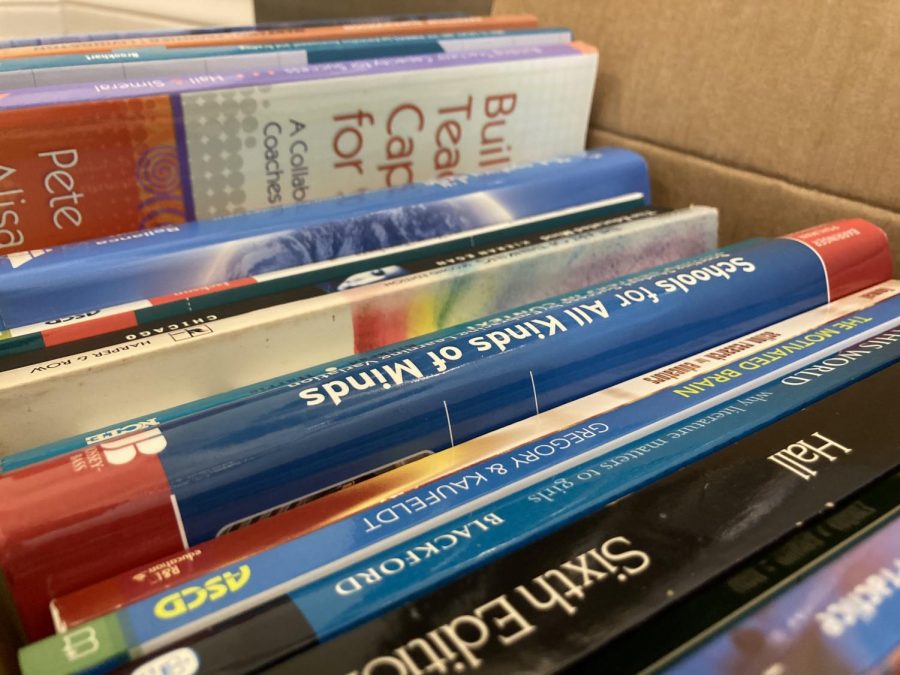The Learning Support Program within Punahou School has progressed through the years with what began as students accommodating themselves later transitioning into a distinguished Learning Difference Program. Approximately 20% of Academy students have a learning difference or other condition that impacts their learning and necessitates academic accommodations.
Many schools label learning differences as a ‘learning disability’ and institute a program titled, ‘Special Education’ (SPED). Special Education is a term for education services for students with disabilities in the public school system. It is based upon a federal education law, the Individuals with Disabilities Education Act (IDEIA). Because Punahou is an independent school, they do not fall under this law; however, in an effort to still provide services for students with learning differences, Punahou instituted a Learning Support Program (LSP).
When asked about SPED compared to LSP, Deane Salter, (diagnosed with dyslexia), sophomore dean, L-Strats teacher, and the sub department chair for Learning Support, said, “SPED has legal ties to it and as a private school, it’s different. So, it is now the ‘Learning Support Program’ not ‘Special Education Program’’”.
The Learning Support Program that currently exists at Punahou entails teachers accommodating the individual student. Punahou has set in place a class called Learning Strategies (L-Strats). This course was designed for students with learning differences in mind, however, some of the students enrolled just need help with their academics and do not have any documented learning difference. This class is optional and can be added into a student’s schedule at their request, or in consultation with their Deans.
When speaking with L-Strats teacher and senior class dean Lisa Stewart about the class curriculum, she stated, “It is support for organization, planning, activation, and sometimes just the structure of having a place to go…emotional support can help the students.”
Different types of curriculum have been put in place for Learning Strategies to ensure that each student is receiving the fullest support. Structure depends on the student, but it can range from support in editing, scheduling, time management, planning, goal setting, and note taking (executive function coaching).
Punahou currently only guarantees extended time for students with learning differences. If a student requires any other accommodations, students (with the support of their L-Strats teacher) self-advocate and talk to their teachers.
When Kat Skorge ‘21, (diagnosed with dysgraphia, ADHD, and dyscalculia), was asked if she feels she is being accommodated properly, she said, “When I first came here, Punahou said they would offer a lot of accommodations…however, I feel like there were certain situations where my idea of the accommodations I was receiving didn’t align.”
Because extended time is the only accommodation that Punahou guarantees to offer students with learning differences, they have to find other ways to cope with their learning challenges. Accommodations such as premade notes, scribes, video-taped lectures, Ipads, typed/handwritten notes, etc. can be requested but not always granted.
Assets High School is structured with a specialized curriculum exclusively for students with learning differences. The goal is to meet the individual needs of each student, doing so by creating smaller class sizes and instituting teacher training.
Dawson Jones (diagnosed with ADHD), a senior at Assets High School, said, “I just wish that people knew that learning disabilities are a spectrum—all of them really. There is no set way a learning disability is. That way, teachers will be more understanding, because that’s what helps the most. Teacher to student interaction.”
In an attempt to address the individual needs of each student with learning differences, Punahou requests an evaluation and diagnosis from a psychologist. Punahou then sets up a structured program for the student’s specific learning style, which is uploaded to MyPunahou for each teacher to see.
Punahou is working to further their Learning Support Program by hiring a Learning Support Specialist for the Academy—(the junior school has four Learning Support Specialists for K-8). The school brought in psychologist Dr. Takashita, a psychologist, to answer questions about learning differences.
As of now, there are no qualifications to be a Learning Support teacher; however, most Learning Support teachers have background in the subject. The teachers meet as a group once a cycle to discuss the curriculum, students, and to review sources or files to assist in the best learning possible.

